Henry Kissinger was actually born Heinz Alfred Kissinger - a typical German name. He was born into an Orthodox Jewish family in the town of Fuerth in the Bavarian region of Germany on May 27, 1923.
During his childhood, Kissinger's family witnessed the rise of Adolf Hitler and the emergence of horrific anti-Semitism and racism within the Nazi regime.
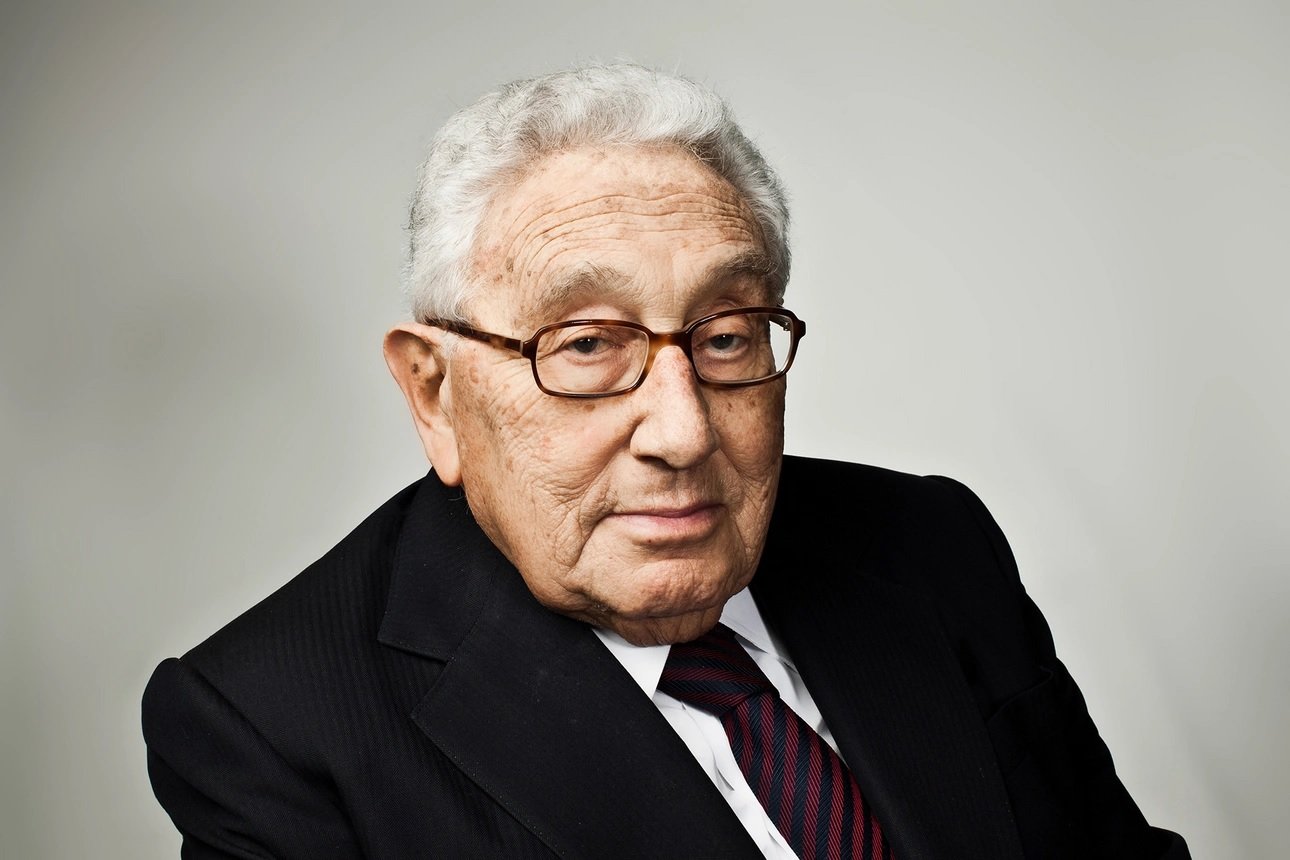
Mr. Henry Kissinger is considered a pragmatic and clever diplomat . Photo: Politico
The Jewish boy with great determination
One summer day in 1933, Heinz Kissinger and his brother Walter Kissinger were swimming in a river near his grandparents' home in Leutershausen when an event changed him forever, when he saw a sign prohibiting Jews.
The young Heinz Kissinger later defied new laws banning Jews from attending sporting events by attending football matches, and was frequently stopped by security forces. He and his friends were also regularly bullied by Nazi youth groups.
“Jewish boys my age couldn’t understand why we were suddenly banned or segregated from others in the Hitler Youth,” Mr Kissinger said in a 2007 documentary. “And it was even harder for my parents,” he added.
Kissinger saw his father removed from his teaching position at a girls' prep school, but it was his mother who suspected worse was to come and prepared for it. Shortly before Kristallnacht, the anti-Semitic events of November 1938, she applied for an exit visa and the family left for London, eventually making their way to New York City. Heinz Kissinger was 15 at the time.
The teenage Heinz enrolled in George Washington High School, but his family's precarious financial situation forced him to work full-time in a shaving brush factory and study at night.
After studying accounting at City College in New York, Heinz—now known as Henry—enlisted in the U.S. Army in 1943 to serve as a rifleman and intelligence officer in Europe, just five years after fleeing Nazi Germany. Upon returning to the United States, he attended Harvard University, earning a doctorate and in 1959 becoming a full professor in the university's Department of Government.
Kissinger became famous in academic circles with his second book, “Nuclear Weapons and Foreign Policy,” in which Kissinger proposed a “flexible” response, arguing that a limited, tactical nuclear war could be won.
While teaching at Harvard, the man known as “Dr. K” served as a part-time foreign policy or security advisor to various US agencies as well as Presidents Dwight Eisenhower, John F. Kennedy, and Lyndon Johnson during the 1950s and 1960s.
The path of de-escalation and diplomacy
Kissinger assumed his first full-time position in the US government in 1969, when President Richard Nixon appointed him National Security Advisor.
According to Kissinger biographer Niall Ferguson, his rapid rise in the ranks of American power was attributed to his timing and his ability to make connections. “Kissinger devoted considerable effort from the beginning to building a network that extended in all directions…”, including the press, foreign governments and even the entertainment industry.
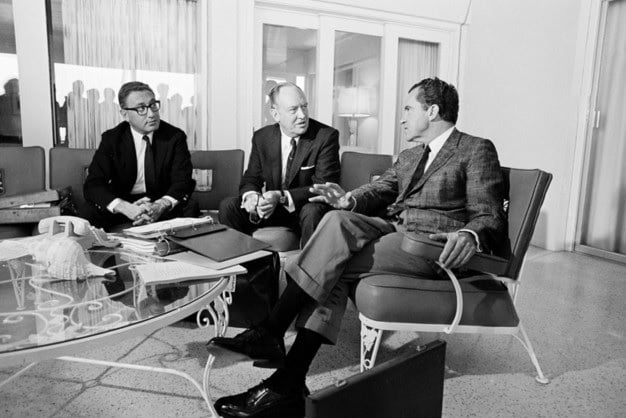
President Richard Nixon (right), Henry Kissinger (left) and Secretary of State William Rogers (center) meet on February 9, 1969. Photo: Henry Griffin/AP
Kissinger rejected the “moralistic” approach to American foreign affairs in favor of a more pragmatic doctrine based on a sophisticated view of the balance of power. He rejected ideologically based approaches to diplomacy such as anti-Communism, preferring instead to pursue a more pragmatic approach to cooperation with Moscow, simply viewing the Soviet Union as a rival superpower.
Likewise, he helped President Nixon reopen dialogue with China, holding secret meetings with Premier Zhou Enlai in July 1971 and paving the way for President Nixon's historic trip the following year – the first visit to China by an American President!
Nixon and Kissinger believed that a relationship with China was important not only because of China’s size and importance, but that even a Sino-American alliance of some degree could provide an important counterweight to the then-Soviet Union. According to Ferguson, the “main reason” for this cooperation was to avoid World War III.
Kissinger's toughness and pragmatism were on display at the height of the Cold War in 1973, when he bluntly told President Nixon that it was inappropriate to pressure the Soviet Union to help Jews leave the country. Although Jewish, he said that it was "not an objective of American foreign policy... because it is not in the interest of the American people. It may be a humanitarian issue... We cannot blow up the world over it."
Controversial Nobel Prize
When Kissinger entered the Nixon administration, the Vietnam War (1954-1975) had been raging for about 15 years, becoming increasingly costly and opposed in the United States as well as many other Western countries.
By mid-December 1972, the protracted peace talks between Washington and Hanoi in Paris had collapsed. President Nixon ordered US B-52 bombers to bomb the capital Hanoi during Christmas, sparking protests around the world.
But the parties later agreed to resume negotiations and the Paris Peace Accords were signed in late January 1973. As Kissinger later sadly shared: “We bombed the North just to get them to accept our... concessions.”
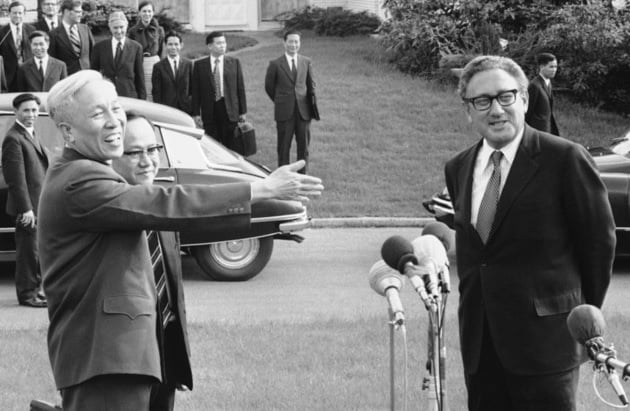
Mr. Le Duc Tho (left) and Mr. Henry Kissinger (right) at an event speaking to the world press in Paris on May 23, 1973. Photo: Michael Lipchitz/AP
In order to consolidate Kissinger's role as America's top politician, President Nixon made an unprecedented move in 1973 when he appointed him both Secretary of State and National Security Advisor - two extremely important positions in the US government at that time.
That fall, Kissinger was nominated for the Nobel Peace Prize along with North Vietnam's chief negotiator, Le Duc Tho, for “negotiating a ceasefire in Vietnam in 1973.”
Many were outraged that Kissinger, the man behind the “Christmas bombings,” was being rewarded for also leading the peace negotiations. Later, diplomat Le Duc Tho refused to accept the joint Nobel Prize on the grounds that Kissinger had violated the armistice agreement and that Vietnam had not yet achieved real peace at that time.
Middle East peace and the "shuttle diplomacy" chain
Although the Watergate scandal dominated the headlines in the spring of 1972 and led to President Nixon's resignation in 1974, Kissinger continued to pursue the administration's foreign policy goals, especially in the Middle East. The October 1973 Arab-Israeli War between Egypt, Israel, and Syria—also known as the Yom Kippur War—and oil issues refocused American attention on the region.
Mr. Kissinger launched a round of “shuttle diplomacy,” meeting directly with regional leaders as a peace broker in a series of short trips. He helped negotiate the withdrawal of troops between Egypt and Israel in January 1974. And after a series of tense negotiations over territory, he reached an agreement between Syria and Israel in May.
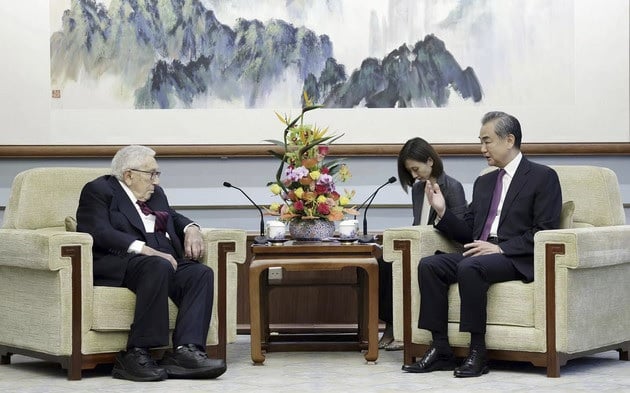
Mr. Henry Kissinger (left) was able to return to visit China, meet Chinese President Xi Jinping and Chinese Foreign Minister Wang Yi (right) in mid-July 2023. Photo: Chinese Ministry of Foreign Affairs
President Nixon resigned on August 9, 1974, and Vice President Gerald Ford took over. Mr. Ford retained Kissinger in the enormous “dual role” of both National Security Advisor and Secretary of State. A Gallup poll in December 1974 even found Kissinger to be “the most admired man in America” for the second year in a row.
Mr. Kissinger left the administration in 1977 when President Jimmy Carter took over the White House, but he remained active behind the scenes in U.S. policymaking as a member of the President's Foreign Intelligence Advisory Board and the Defense Policy Board, among other government agencies. He founded Kissinger Associates, a private investment and strategy consulting firm, in 1982.
The power of “balance”
Despite the many controversies that have overshadowed his career, there is no doubt that Kissinger played a key role in many of the key decisions that shaped the world order in the second half of the 20th century.
A renowned author, he published his 19th book, “Leadership: Six Studies in World Strategy,” in 2022. In an interview that year with the Wall Street Journal, he emphasized “balance” as a necessary guiding principle for any statesman in a nuclear-age world.
For Kissinger, the threat of human extinction from modern warfare made maintaining balance through diplomacy paramount. This was evident in many of his diplomatic activities, despite criticism for sometimes adopting what many considered too rigid a stance to maintain “balance” with other world powers.
Hoang Hai (according to France24, Politico, AP)
Source



![[Photo] Da Nang: Shock forces protect people's lives and property from natural disasters](https://vphoto.vietnam.vn/thumb/1200x675/vietnam/resource/IMAGE/2025/10/22/1761145662726_ndo_tr_z7144555003331-7912dd3d47479764c3df11043a705f22-3095-jpg.webp)
![[Photo] Prime Minister Pham Minh Chinh chairs meeting on nuclear power plant construction](https://vphoto.vietnam.vn/thumb/1200x675/vietnam/resource/IMAGE/2025/10/22/1761137852450_dsc-9299-jpg.webp)

![[Photo] Award Ceremony of the Political Contest on Protecting the Party's Ideological Foundation](https://vphoto.vietnam.vn/thumb/1200x675/vietnam/resource/IMAGE/2025/10/22/1761151665557_giaia-jpg.webp)

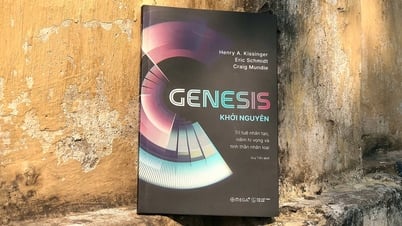

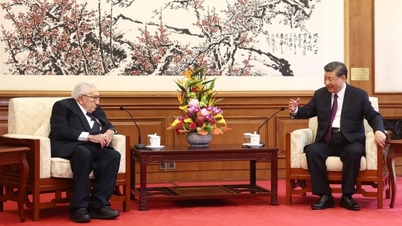
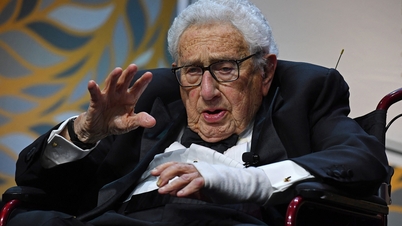


















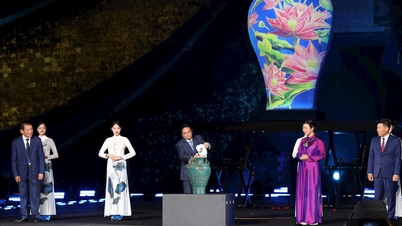







































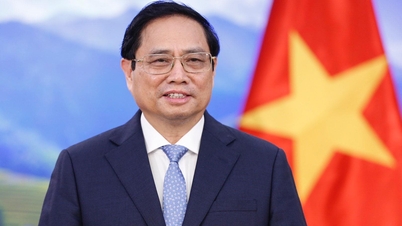

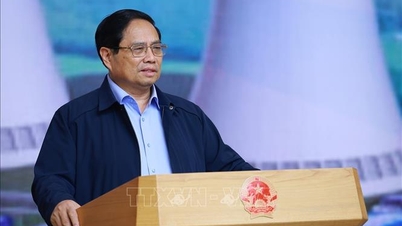
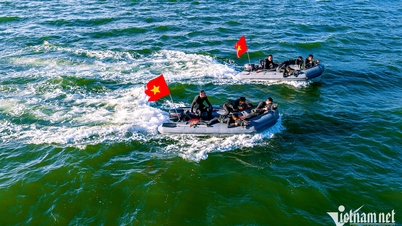

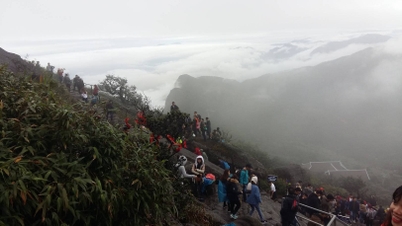

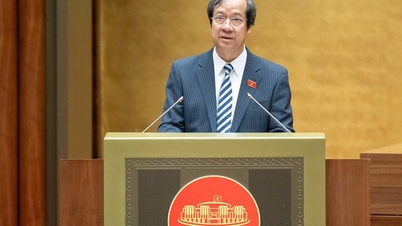

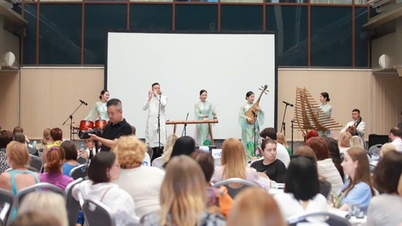
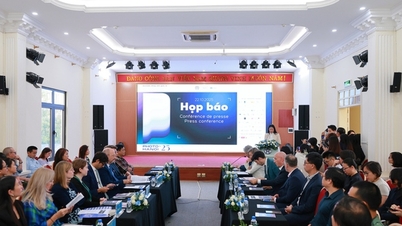

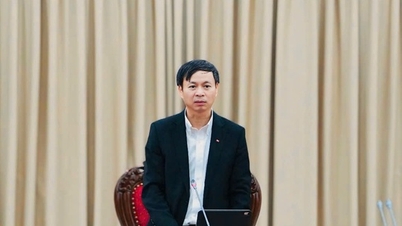

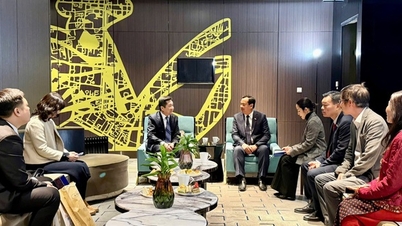


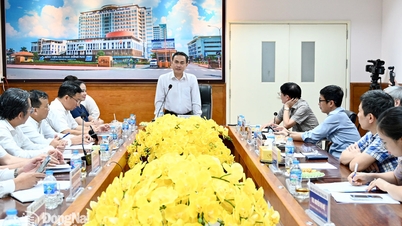


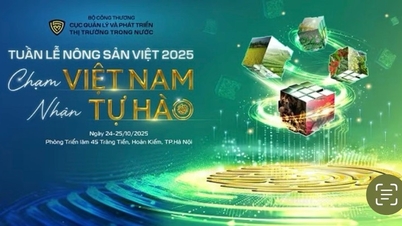

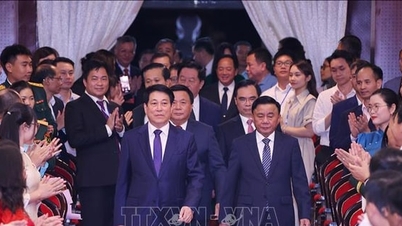

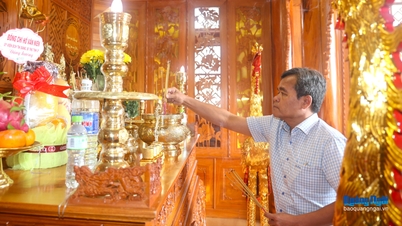














Comment (0)